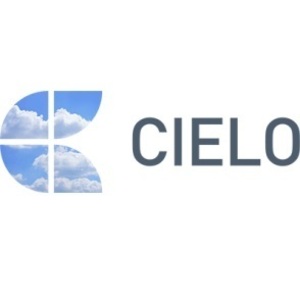Cielo announces purchase commitment for renewable diesel

February 24, 2021
BY Cielo Waste Solutions
Cielo Waste Solutions is pleased to announce its first significant sale of renewable fuels with a purchase commitment for 900,000 liters (238,000 gallons) of renewable diesel at CAD$1.67/liter for an aggregate purchase price of CAD $1.5 million. The purchaser will also have an option to purchase another 600,000 liters (159,000 gallons ) of renewable diesel at the same price of CAD $1.67/liter for a period of 6 months.
This purchased fuel will be produced at the company’s waste to renewable fuel facility located in Aldersyde, Alberta, anticipated to be produced over approximately the next three to five months. The purchased fuel will be held on-site in storage tanks until Cielo reduces the sulphur content down to less than 15 PPM by treating it with the proprietary process that is now being fabricated. Once the desulphurization process is completed, the treated renewable fuels will be shipped as directed by the Purchaser. Management believes that the premium price per liter being paid by the purchaser confirms the purchaser’s confidence in Cielo to deliver desulphurized renewable diesel, which commands a higher price than sulfured diesel and traditional biodiesel.
Upon payment of the aggregate purchase price, anticipated to be on or about Feb. 26, 2021, Cielo will issue 3,750,000 share purchase warrants to the third party who brokered the purchase and sale. The Warrants will be exercisable at $0.135 for a period of 24 months, subject to acceleration at the option of the company, whereby the term of the warrants may be reduced to 30 days following notice to the purchaser. The company will be entitled to accelerate the term of the warrants in the event that the closing price of the company’s common shares is $0.25 per share or higher for a period of at least 10 consecutive trading days. The Broker will also receive a 5 percent cash commission.
Advertisement
Don Allan, president and CEO of Cielo, stated, “After several years of advancing our waste to high grade renewable fuel technology, we are finally in a position to start reaping the rewards of our efforts. These revenues are expected to put Cielo into immediate positive cash flow and may also open up additional non-dilutive financing opportunities for Cielo should they be required.” Mr. Allan continued, “We are very excited to share with the world our lucrative way to convert multiple waste streams, including all plastics, into high-grade renewable fuels, that we believe can command a premium price to both conventional diesel and biodiesel. Our anticipated cost of approximately $0.90 per liter would allow for healthy margins and we are confident that we can reduce costs even further as a result of our commitment to increasing production levels as we progress. This is truly a milestone in the long journey for Cielo and its shareholders and we are pleased to prove to the world that we are here to stay and make a serious effort to help with the world garbage crises.”
Advertisement
Related Stories
CoBank’s latest quarterly research report, released July 10, highlights current uncertainty around the implementation of three biofuel policies, RFS RVOs, small refinery exemptions (SREs) and the 45Z clean fuels production tax credit.
The U.S. Energy Information Administration maintained its forecast for 2025 and 2026 biodiesel, renewable diesel and sustainable aviation fuel (SAF) production in its latest Short-Term Energy Outlook, released July 8.
XCF Global Inc. on July 10 shared its strategic plan to invest close to $1 billion in developing a network of SAF production facilities, expanding its U.S. footprint, and advancing its international growth strategy.
U.S. fuel ethanol capacity fell slightly in April, while biodiesel and renewable diesel capacity held steady, according to data released by the U.S. EIA on June 30. Feedstock consumption was down when compared to the previous month.
XCF Global Inc. on July 8 provided a production update on its flagship New Rise Reno facility, underscoring that the plant has successfully produced SAF, renewable diesel, and renewable naphtha during its initial ramp-up.
Upcoming Events










